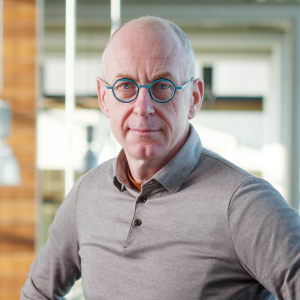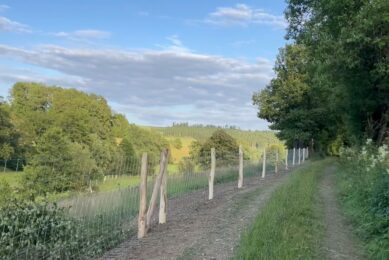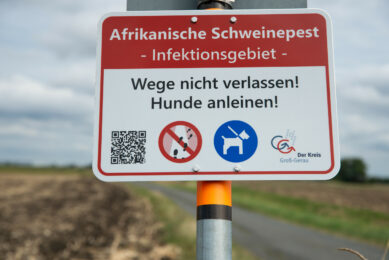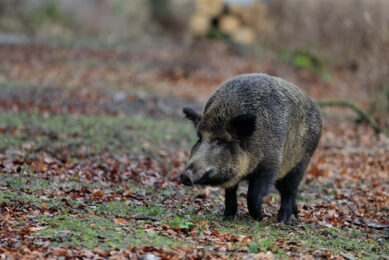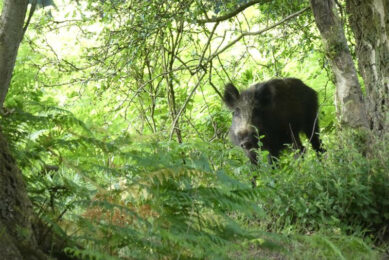Interview: China is urgent and important to us
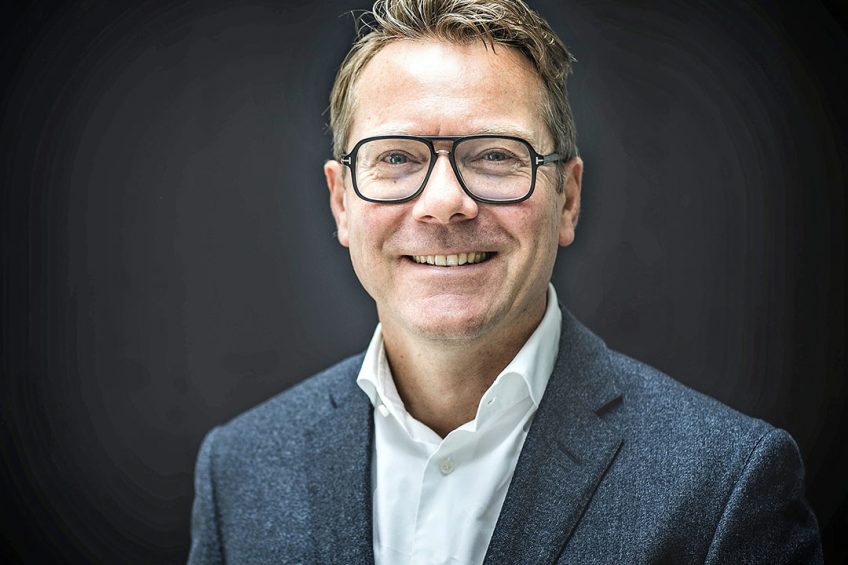
Early in 2020, Netherlands-based breeding company Topigs Norsvin appointed Villaume Kal as new CEO. Since then, targets have been finetuned. The company aims to grow in the big countries where the large integrators can be found.
Villaume Kal has been CEO of Topigs Norsvin since mid-March. He succeeded Martin Bijl, who left the company last year. Kal, who lives in The Hague, the Netherlands, has ample management experience. His manner betrays that he is used to a place in the boardroom. He often uses management terms and English in conversation. The latter fits perfectly with a company that is rapidly becoming more international.
Pig breeding is new to Kal, which becomes clear when the conversation briefly turns technical. However, delving into the sector has been impossible so far. Company and client visits have been only partly possible, due to Covid-19. The Netherlands was placed in a lockdown the very day Kal started at Topigs Norsvin, and travelling abroad has been impossible for the last six months.
The new CEO has put a lot of time into revising and refining the strategic plan, which is now finished and consists of four parts:
• Speeding up genetic progress;
• Smarter gene distribution, so the end user can quickly profit from genetic progress;
• Appointing important markets and clients; and
• Providing means to reach these goals, such as information technology.
Kal says, “We have made sharp choices and there is more focus on the aforementioned points.”
Pig Progress: How will you speed up genetic progress?
Villaume Kal: “We will add a quarter more sows to the top of the pyramid. This way, the pool with nucleus animals to select from will be bigger. In Canada and Norway we do CT scans of the boar, about 10,000 times annually. The resulting images of carcass composition help us to make the right breeding choices, which accelerates breeding. The boar at the AI stations will be replaced faster in the future. This also leads to more data. Our business is a combination of data and animals.”
Can the newest genes reach clients faster than they do now?
“Absolutely. Global distribution can take place a lot faster for various reasons. Animal diseases are a problem in some countries. In other countries, trade barriers or complicated quarantine rules are causing delays. We will dive into that more, which will lead to methods to accelerate gene distribution. That also goes for Europe. African Swine Fever (ASF) in Germany might also make distribution more difficult.”
Market orientation is interesting as well. In China, demand for genetics can barely be met. However, Topigs Norsvin took a step back in this country five years ago by abandoning nucleus breeding with local partners. Will this step be reconsidered?
“We want to play a firm role in the Chinese pig market, but in a responsible way. The Chinese market has changed radically, and clients are far more professional compared to five years ago. Cooling and freezing capacity has greatly increased, which suggests a larger sector that is more organised in chains. China is urgent and important to us and that is why we want to be strongly present again in 2021. In China, for China. China wants production to take place nationally, and keeping pigs in China is very lucrative. We think that in five years, the cost price will be leading again if ASF is under control. In short: there are enough reasons to revise the strategy.”
Growth scenarios
Topigs Norsvin needs more partnerships such as the one it signed at the beginning of September with the US breeding company Acuity. However, Kal is open to other forms of growth as well, including acquisitions. The level of ambition is high. Kal wants to at least be in the global top two pig genetics suppliers. Despite mergers and acquisitions, many pig breeding companies remain. In the future, the breeding landscape will be like the poultry sector, which has a very limited number of breeding companies. Topigs Norsvin wants to stay.
On which clients do you focus and where?
“In addition to China, we focus on the United States, Brazil, Spain and Russia. In all these countries, pig production is integrated to a large degree. We focus on these types of clients in these markets. At the same time, the attention to our domestic markets Norway, Germany and the Netherlands remains, but that happens automatically. These countries do not provide growth.”
The domestic markets are troubled. Take for example the public debate about animal welfare and the environment. How do you plan to contribute to this?
“There are still many possibilities in the areas of breeding and technology. Our finishers need 25 kilogrammes less feed annually to reach the same weight as five years ago. I do not know whether the feed conversion will improve that much again in the coming five years, but it is certain that it will decrease further. The carbon footprint of pig meat is relatively favourable and will become better. Research shows that 78% of the raw materials in pig rations is not suitable for human consumption. This is not my own calculation. Some chains can operate free of antibiotics. The use of our TN Tempo boar causes less Porcine Reproductive and Respiratory Syndrome (PRRS) pressure on companies in the United States. A lot is happening that improves our achievements in the field of sustainability.
We succeed in weaning 99% of Topigs Norsvin piglets with their mothers
“Group behaviour is recorded with cameras we use to improve the animals’ performance as a group. This also provides data about possible biting and the ways to prevent this from happening, which is better for welfare. Of course, we have also been working on our balanced breeding programme for the last 20 years. We only want more piglets per litter if the sow can rear them herself. Piglet mortality cannot increase. We are at the forefront in this field. The TN70 sows that were born last year have an average of 16.1 piglets. Under the right circumstances, we succeed in weaning 99% of the Topigs Norsvin piglets with their own mothers. Breeding companies look at litter growth differently than closed and integrated finisher farms. In finisher production, integrated or not, the number of kilogrammes of meat is what counts, as well as the cost price.
“However, aspects such as vitality and carcass quality are important for both. The farmer that buys the piglets also wants a maximum yield.”
Clients in China are far more professional compared to five years ago
Is it true that only few sow farmers succeed in weaning all piglets with their own mother? Sometimes, 18 piglets are born in a litter; surely you cannot do without foster sows or moving piglets?
“At an average of 16.1 piglets, some sows have fewer than 16, others more. We have data from farms that succeed in weaning all piglets with their mothers. But here, everything fits; management, health, feed, climate, etc. But of course, it is also up to the farmer to maximise yield.”
About Topigs Norsvin: The market is insecure because of viruses. Will you be able to match the result of 2019?
“Yes, with today’s knowledge I can say we will top the record result we had in 2019. This is excluding the possible influence of ASF in Germany. I cannot mention a percentage, but we are growing faster than the market. I think this is the case for all large pig breeding companies. The market keeps consolidating and it is up to us to go along with it. Our ambition is to at least remain in the lead. I am particularly driven to get Topigs Norsvin to the next level, together with all our motivated employees.”


